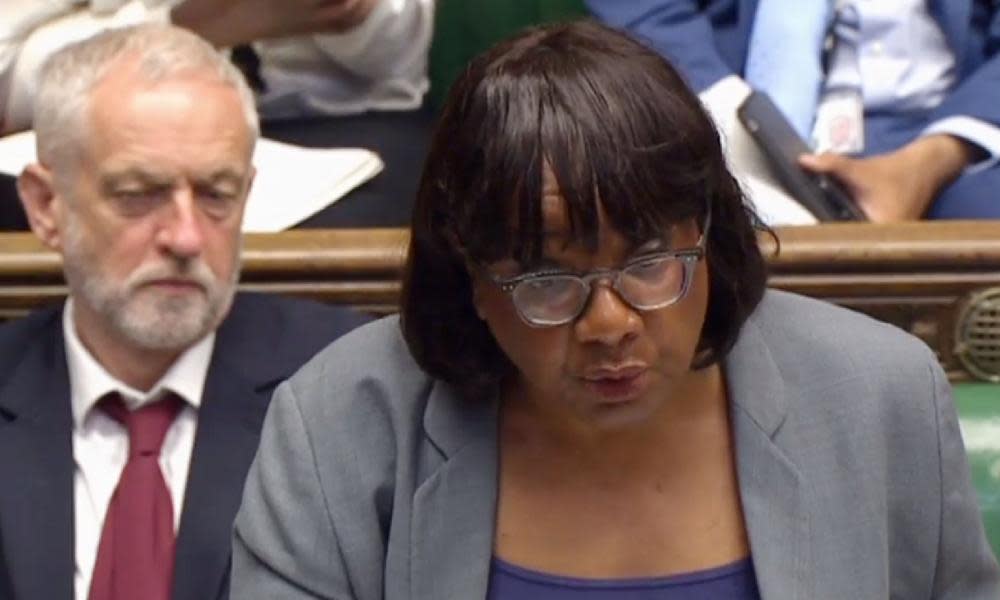Ministers urged to ditch plans to cut number of MPs by 50

A new map of MPs’ constituencies produced by the boundary commissions for England, Scotland and Wales would boost the Conservative party’s chances of winning an election and do away with Jeremy Corbyn’s north London constituency seat.
Labour and the Liberal Democrats have called on ministers to abandon plans to cut the number of MPs from 650 to 600, saying the government does not have enough Commons support to pass the revised boundary changes.
Labour has previously said the plans to equalise the number of voters in seats would adversely affect the party and has vowed to oppose them.
On Tuesday, the boundary commissions for England, Scotland and Wales published revised plans for the changes, following months of public consultation. Initial analysis of the plans indicate a marginally worse electoral map for Labour if they are implemented.
Seats in some areas, including Bedford, Croydon and Wimbledon, have been revised in ways some analysts say are slightly better for the Conservatives.
In London, the Boundary Commission for England has opted to keep changes that would absorb Corbyn’s Islington North constituency into surrounding seats. The revisions would also abolish the constituencies of the shadow foreign secretary, Emily Thornberry, and shadow home secretary, Diane Abbott.
Proposed changes to Boris Johnson’s Uxbridge seat could make the foreign secretary potentially vulnerable to a Labour challenge.
However, it is by no means certain the changes, due to come into force before the 2022 election, will even be passed following the loss of the Conservative majority in June’s snap election.
The DUP, on whose support Theresa May’s government relies, is vehemently opposed to the initial boundary change proposals for Northern Ireland, which were seen as adversely affecting unionist parties.
The Boundary Commission for Northern Ireland does not report its revised proposals until January, and it remains to be seen if the plans will be modified enough to bring the DUP onside.
Cat Smith, Labour’s Cabinet Office minister, who leads on electoral issues, said it was time for the plans to be abandoned. “Labour stands ready to work with all parties to ensure that a boundary review can go ahead in a way that benefits our democracy, not just the Conservative party,” she said. “However it has been clear from the start that the Tories have only been interested in their own political advantage rather than what is in the best interests of the country.
“To lose 50 MPs at a time [when] we are repatriating powers from Brussels as we leave the European Union risks leaving the UK government struggling to keep up with the day to day requirements of legislation.
“They need to drop their unfair, undemocratic plans, as well as ensuring the review is based on the most up-to-date register and that there is appropriate flexibility to take into account community ties and geography.”
Alistair Carmichael, the Lib Dem chief whip, said his party opposed the plans even though they stood to benefit the party electorally. He said: “The DUP will not wear this review. Nor will many Tory backbenchers. The government should stop wasting public funds and bow to the inevitable.”
As well as cutting the number of MPs the review is charged with equalising the number of people in each seat to around 75,000.
When the initial proposals were published last year, Labour said the plans were politically motivated and queried why the boundary commissions were told to use electoral data from December 2015, before an estimated 2 million new voters signed up for the Brexit referendum.

 Yahoo News
Yahoo News 
